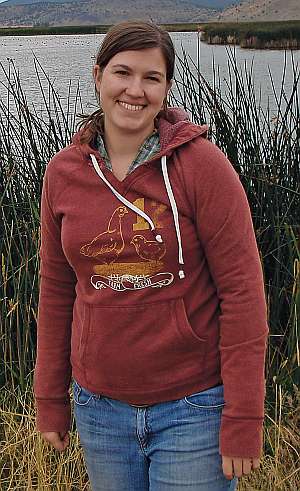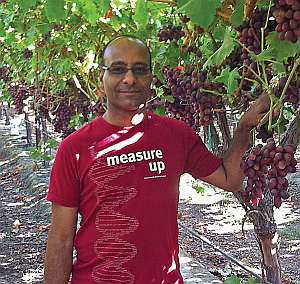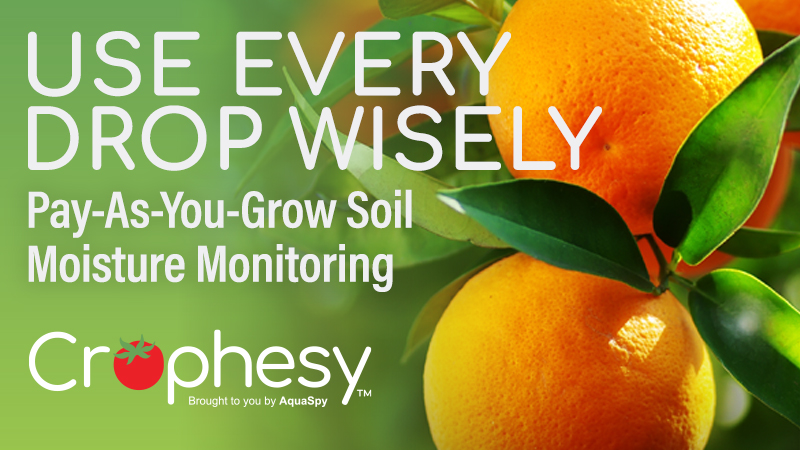Q & A: New Extension Farm Advisors In California Grape Country
For too Many years, grape growers in the southern San Joaquin Valley haven’t had access to local University of California Cooperative Extension farm advisors. Because of budget cuts, the positions were left unfilled.
But both situations have been rectified in recent months with the hiring of Allison Ferry-Abee, who will serve Tulare and Kings Counties; and Ashraf El-kereamy, who is based in Kern County. These areas are best known for table grapes, but raisins and winegrapes are also produced.
American and Western Fruit Grower is a big booster of Cooperative Extension, a tremendous source of information. Also, it seems that Extension posts tend to attract bright, inquisitive people who are friendly and eager to share information — a winning combination.
We connected with the two new advisors to to introduce them to our readers and get their thoughts on the research they’ll be doing and how they will work with you, the grower.
WFG: What interests you about viticulture? Why?
 Ferry-Abee: At heart, I’m just a big plant nerd; I’ve always loved learning about plants and agriculture. Specialty crops have always been a big interest of mine. And grape production methods, especially for table and raisin grapes, are fascinating and fun to work with.
Ferry-Abee: At heart, I’m just a big plant nerd; I’ve always loved learning about plants and agriculture. Specialty crops have always been a big interest of mine. And grape production methods, especially for table and raisin grapes, are fascinating and fun to work with.
I feel privileged to be able to work on such an important commodity in Tulare, Kern, and Kings Counties. As a bonus, it’s wonderful to love to eat the crop I work with. Much more fun than, say, safflower or cotton!
El-kereamy: I have an agriculture-oriented mind; going to the school of agriculture was one of my dreams. During undergraduate studies, I got fascinated by grapevines and I decided to work more in viticulture. The grapevine is an amazing plant with unique characteristics. It is not easy to grow; you need to understand it very well to be able to control it. That will allow you to get a good yield with a high quality. The more attention and care you give to the vine; the more benefits you get from it, and that is why I was inspired to work in viticulture.
How familiar are you with California? With the San Joaquin Valley? What drew you to the place?
Ferry-Abee: My family and my husband’s family live here in the valley; this job is a wonderful opportunity for me to do what I love and be close to loved ones. I grew up in Easton, a small town in the heart of raisin production in California. My parents weren’t farmers, but farming in the San Joaquin Valley is an important part of my family history. One of my great-grandfathers was even a pest inspector for Sun Maid. I also went to Fresno State for my bachelor’s degree in Plant Science. It was a wonderful place to gain a practical understanding of the breadth of agriculture in the San Joaquin Valley.
 El-kereamy: I am originally from Egypt, where table grape viticulture practices are similar to those in California due to the similar warm weather. I used to follow the California Extension newsletters and viticulture guidelines when I was working in viticulture in Egypt. The San Joaquin Valley was my first place to visit outside of Egypt through a scientific tour organized by the ministry of agriculture. When I visited this place, I liked the huge agriculture activities in this valley and I dreamed of working here one day, and the dream came true in 2014.
El-kereamy: I am originally from Egypt, where table grape viticulture practices are similar to those in California due to the similar warm weather. I used to follow the California Extension newsletters and viticulture guidelines when I was working in viticulture in Egypt. The San Joaquin Valley was my first place to visit outside of Egypt through a scientific tour organized by the ministry of agriculture. When I visited this place, I liked the huge agriculture activities in this valley and I dreamed of working here one day, and the dream came true in 2014.
Are you very familiar with the industry?
Ferry-Abee: I’m not very familiar with the table grape industry, which encompasses the majority of grape acreage in Tulare County. However, the California Table Grape Commission and retired farm advisors Bill Peacock and Don Luvisi have been extremely helpful in getting me up to speed. I still have a lot to learn and I’m enjoying every minute of it.
El-kereamy: I am familiar with the table grape industry. In general, I used to work in viticulture consultation in Egypt close to the international experts from different regions, such California and Chile.
However, I am working now in getting familiar with grape industry in California with the help of different organizations and the former farm advisor, Don Luvisi, who was a great help for me. I really appreciate the efforts of all viticulture organizations to make me familiar with the industry and introducing me to the growers in their events.
Being in Extension, you’ll likely do both research and work with growers. Both are valuable and necessary. Do you think of yourself more as a researcher or a hands-on advisor?
Ferry-Abee: I see research and extension as different sides of the same coin — both are an absolutely integral part of a career of a farm advisor. Fortunately, I love both doing research and working with growers. Growers inspire me to ask questions and define issues, and research helps me to solve those questions and issues. In an ideal world, my time would be split 50-50 doing both. That may seem like a bit of a cop-out to not pick one over the other, but it’s absolutely true!
El-kereamy: For me, the research has to be done to solve an existing problem or to improve the productivity of any crop. Working with the growers is an excellent way to figure out how to use my expertise to carry some research and help the growers achieving their goals. The relation between the two activities is tight and I enjoy being in the vineyard to help the growers, design my experiments and carry the research at the same time.
Have you set any short-term goals as of yet? Any long-term goals?
Ferry-Abee: I am very interested in postharvest research for table grapes, as well as disease control methods for the San Joaquin Valley. In the short term, I’d like to have Botrytis and powdery mildew control trials. I’m also planning on having an IPM grower symposium specifically for grapes in the Southern San Joaquin Valley.
It has been several years since the retirement of Bill Peacock, the previous viticulture advisor for Tulare County, and there hasn’t been anyone in Kern or Fresno County for several years either. People got used to not having any farm advisors available to help them. A primary long-term goal for me is to build back up relationships and trust between growers and Cooperative Extension, and also to develop a strong and influential Extension program among the newly hired farm advisors.
El-kereamy: I am very interested in defining the problems that may affect grape production in Kern County and try to use my expertise to help in solving these problems. My short-term goals are to interact with grape growers and agriculture organizations in the Central Valley and to define the common problems that need to be addressed. To achieve these goals, I am attending different grower organizations’ meetings to be introduced and discuss growers concerns. My long-term goals are to establish a strong Extension program that helps grape growers address their concerns and sustain grape production in Kern County.
As you know, grapes have been doing well of late. What can you bring to the table to help ensure growers’ continued success?
Ferry-Abee: The vast majority of grape growers and vineyard managers, PCA’s, etc. already know how to be great grape farmers. I see my job as helping them with questions they can’t answer, and that nobody knows the answers to yet. My job is to help solve problems and to help grape growers be even more successful.
I am interested in helping to solve problems related to any horticultural issues growers have — canopy management, irrigation, weed control, you name it. But my background (and what I would be most likely to be able to help growers with right away) is in plant pathology. Specifically, I have technical knowledge in diagnostics and plant disease control. I got my Ph.D. in plant pathology at UC-Davis, and I had the wonderful opportunity to do practical disease control research and learn from some of the best diagnosticians in California: Doug Gubler and Mike Davis. I learned so much from them, and I’m looking forward to learning more and sharing this knowledge with growers throughout my career.
El-kereamy: Viticulture practices in California have been a model for grape production for many years and the source of valuable information all over the world. The majority of California grape growers have very good experience and are doing a really good job. Due to climate change and water issues, we are facing more problems compared to the past. For example, the warmer weather we experienced this year affected some winegrapes and their life cycles. My role will be to help the growers to sustain their high yields and quality under these conditions. Beside my master’s and Ph.D. degrees in hormonal control of fruit ripening, I have practical experience in improving both fruit quality and plant stress tolerance. In addition to my expertise, I will be acting as a liaison between growers and UC specialists and faculty members to address any concerns. Collective efforts need to be achieved to maintain the success of our great Central Valley viticulture.
If the drought continues, some growers are going to have to take extreme measures. How can you help them?
Ferry-Abee: Deficit and/or saline irrigation management is a major priority to me. Even if we pull out of the current drought soon, this is a recurring problem in California that I don’t see going away anytime soon. In future research, I’d like to examine deficit irrigation and see how much irrigation can be cut back post-verasion without affecting the crop load in later years. I’m also interested in screening new rootstocks for salinity tolerance. This doesn’t make things easier in the short term, but hopefully it will have long-term benefits.
El-kereamy: Drought is one of my major concerns; I am trying to evaluate some agricultural practices that could be used to increase vines’ water use efficiency and consequently survive under drought conditions. Long-term solutions for this problem will include screening for drought and heat tolerant varieties as well as rootstocks.
If you could have dinner with one well-known person, who is either alive today or from the pages of history, who would it be? Why?
Ferry-Abee: I would love to have been able to meet George Washington Carver . His work had a huge impact on agriculture, and especially the rural poor. His research took a relatively unimportant crop, peanuts, (which were until then mainly used as livestock feed) and transformed it into a mainstay food source and rotation crop. I find his dedication to the poor and to farmers inspiring.
El-kereamy: I wish I could have a dinner with James Houston, the Secretary of Agriculture in 1914. He was one of the pioneers who helped in establishing the cooperative system. He brought together the land-grant colleges and the USDA to initiate the Smith-Lever Act, legislation that created a nationwide Cooperative Extension system. After a hundred years of success, we need recognize these people and learn from them to be ready for the future.









